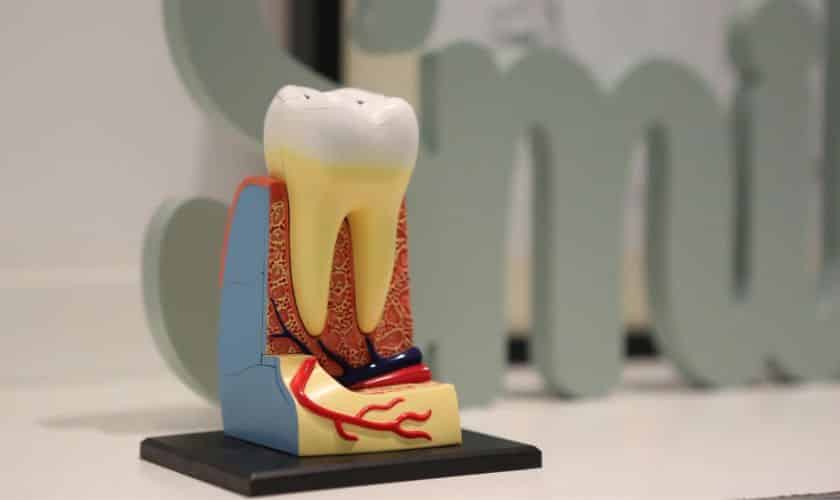
Whether or not you should get dental sealants is a hot debate that has been going on for years. While some dentists swear by them and recommend them to their patients, others are less convinced. In this article, we’ll discuss the pros and cons of getting dental sealants so you can make an informed decision. Read on to find out more!
What are Dental Sealants?
Dental sealants are a thin, clear or white coating applied to the chewing surfaces of the back teeth – the molars and premolars—the sealant bonds to the tooth enamel, creating a barrier that keeps out food and plaque. Sealants can last for several years and are an effective way to prevent cavities in children and adults.
There are two types of dental sealants: resin-based and glass ionomer. Resin-based sealants are made of a plastic material that bonds to the tooth enamel. Glass ionomer sealants release fluoride ions which help to protect the teeth against cavities.
Sealants are most commonly used in children. Their teeth are more likely to develop cavities due to their smaller size and undeveloped enamel. However, adults can also benefit from sealants, especially if they have deep grooves in their teeth or if they are at high risk for cavities.
Sealants are quick and easy to apply and do not require special preparation. The dentist will dry your child’s teeth and apply the sealant with a brush. The process takes only a few minutes per tooth, and there is no need for anesthesia or drilling.
Once the sealant is applied, it will harden quickly and create an invisible barrier against cavities. It is important to remember that sealants do not replace regular brushing and flossing – they should
The Pros and Cons of Dental Sealants
When it comes to dental sealants, some pros and cons must be considered. This preventative measure can be taken to avoid tooth decay, but it has drawbacks. Understanding the positive and negative aspects of dental sealants will help you make an informed decision about whether or not this is the right choice for you and your family.
The Pros:
Dental sealants act as a barrier between your teeth and harmful bacteria. They are quick and easy to apply and last for several years with proper care. Sealants are most effective when applied to molars and premolars, the teeth most susceptible to cavities. They can also be used to baby teeth to protect them from decay until permanent teeth replace them.
The Cons:
Although dental sealants are safe for most people, there is a small risk of allergic reaction or choking if swallowed. Bonds can also trap food particles and bacteria, which may lead to bad breath or an increased risk of cavities if they are not adequately cared for. Some insurance companies do not cover the cost of sealants, which can be expensive depending on the number of teeth that need to be treated.
Who Needs Dental Sealants?
Dental sealants are a type of preventive dental treatment that can be used to help protect teeth from cavities. Sealants act as a barrier between the tooth and food, keeping bacteria and other particles from getting into the tiny crevices of the teeth and causing decay. They are most often applied to the back teeth, which are more susceptible to cavities due to their location and the fact that they are used for chewing.
There are several reasons why someone might need dental sealants. If you have deep grooves or pits in your teeth, you may be more likely to develop cavities in those areas. Sealants can help protect these vulnerable areas and prevent cavities from forming. Sealants may also be recommended if you have a history of holes or certain medical conditions that put you at higher risk for cavities (such as diabetes).
If you need dental sealants, talk to your dentist. They will be able to assess your risks for cavities and recommend whether or not sealants are suitable for you.
How Much Do Dental Sealants Cost?
There is no definitive answer to the question of how much dental sealants cost because the price can vary depending on several factors, such as the geographical location, the dentist’s experience and qualifications, and the type of sealant used. In general, however, dental sealants are relatively affordable, with most insurance companies providing coverage for at least a portion of the cost.
While the initial investment for getting dental sealants may be higher than simply brushing and flossing regularly, it is essential to consider the long-term benefits of this preventive measure. Sealants can last for several years and help protect against tooth decay, ultimately saving money on costly dental treatments down the road.
Alternatives to Dental Sealants
A few alternatives to dental sealants can help protect your teeth. One alternative is fluoride varnish, which your dentist or hygienist can apply. Fluoride varnish has been shown to be effective in preventing cavities. It can also be used on children too young for sealants. Another alternative is to use Pit and Fissure Sealants, available over the counter and can be applied at home. However, these sealants are less effective than dental sealants and may need to be reapplied more often.
Conclusion
In conclusion, dental sealants can be a great way to protect your teeth from decay and cavities. While they are not always necessary, they are highly recommended by dentists in some instances due to their effectiveness in preventing cavities. Suppose you have any questions or concerns about whether or not dental sealants are suitable for you. In that case, it is best to consult with your dentist, who will provide more information on the pros and cons of this preventive treatment option.
